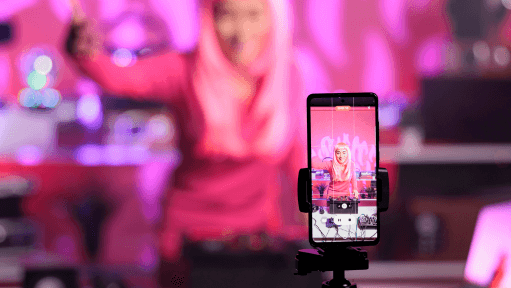
TikTok Initiates Legal Action to Block US Legislation Seeking Sale or Ban of App
TikTok argues that divesting within the mandated 12-month timeline is ‘simply not possible’
TikTok has taken legal action against the federal government on Tuesday, aiming to thwart a newly enacted law that mandates its China-based parent company to divest the popular video-sharing app within the next year or face a complete ban in the US.
The lawsuit, filed in a federal appeals court in Washington DC, seeks a court order to halt the enforcement of the bipartisan legislation, dubbed the Protecting Americans From Foreign Adversary Controlled Applications Act.
This law, signed by President Biden last month after swift approval by Congress, has been challenged by TikTok as "unconstitutional." The company argues that divesting within the mandated 12-month timeline is "simply not possible: not commercially, not technologically, not legally."
According to the lawsuit, TikTok asserts that the Act will inevitably lead to the shutdown of the platform by January 19, 2025, affecting the 170 million Americans who use it for communication purposes. The company is urging the court to declare the law as violating the US Constitution and to provide any necessary relief.
A spokesperson for the White House referred inquiries to the Justice Department, which declined to comment on the lawsuit. Meanwhile, representatives for the House Select Committee on China, which backed the bill, have not responded to requests for comment.
The law mandates ByteDance, TikTok's parent company, to divest its stake in the app by January 19, 2025, or one day before President Biden’s term concludes. The President has the option to extend this window by three months if satisfactory progress is being made towards a deal.
Tuesday’s legal action is expected to halt this timeline and potentially delay a ban for several years, as reported by NBC News.
TikTok alleges that the Chinese government has indicated it would not allow divestment of the recommendation engine crucial for TikTok's success in the US.
Additionally, the company claims that relocating its source code to the US would be a lengthy process, requiring years and a new team of engineers to manage.
The outcome of the lawsuit may hinge on the level of national security concerns that prompted Congress to pass the law. Gautam Hans, associate clinical professor of law at Cornell University, suggests that TikTok stands a strong chance, citing potential First Amendment issues with the law.
Critics have accused TikTok of serving as a tool for the Chinese Communist Party, facilitating activities ranging from election interference to promoting terrorist propaganda and exacerbating teenage mental health issues.
Despite TikTok's efforts to address these concerns and ensure platform security, critics remain adamant about the app's threat to national security.
Jacob Helberg, a member of the US-China Economic and Security Review Commission, dismisses TikTok's lawsuit as lacking seriousness, emphasising the documented ties between ByteDance and the CCP.
Last year's resurgence in calls for a US ban on TikTok was fueled by concerns about its content moderation policies. These concerns escalated following instances where pro-Palestinian content gained substantial traction, as well as a trend where users shared videos endorsing terrorist rhetoric.
In March, the Office of the Director of National Intelligence concluded that TikTok had been used by the Chinese Communist Party to influence US elections, engaging in malign influence operations.
Despite TikTok's significant economic contributions to the US economy, including a reported $24.2 billion in 2023, the divestiture law moved forward despite the company's extensive lobbying efforts.
The prospect of a forced sale has attracted interest from various parties, including former Treasury Secretary Steven Mnuchin and former Activision-Blizzard CEO Bobby Kotick. Mnuchin has reportedly been presenting potential investors with plans to acquire TikTok and rebuild its recommendation algorithm within the US, potentially circumventing China's strict technology export regulations.
For any enquiries or information, contact ask@tlr.ae or call us on +971 52 644 3004. Follow The Law Reporters on WhatsApp Channels.